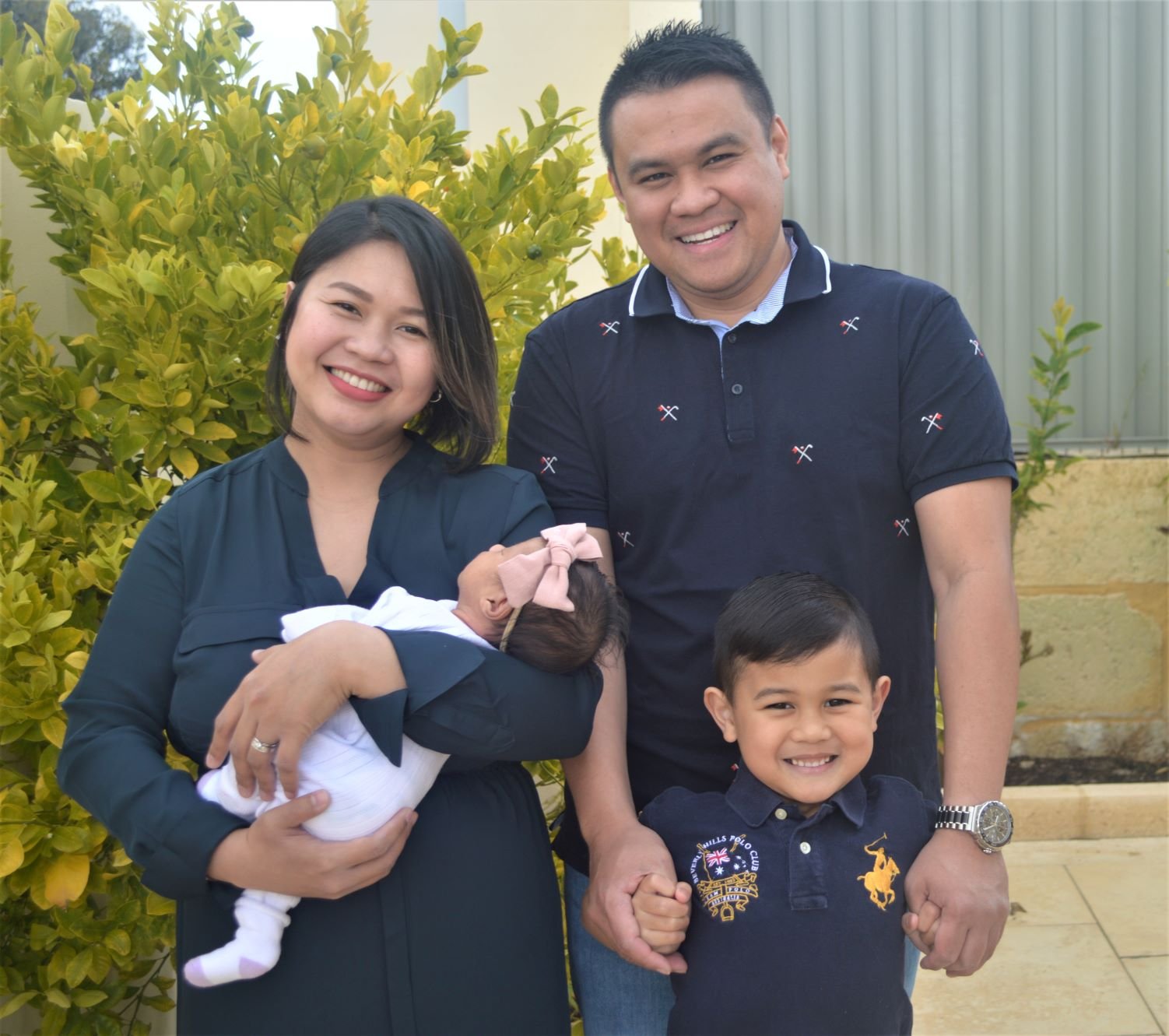4,000 local families are changing the health of future generations.
The project, a collaboration between The Kids and Joondalup Health Campus, is in its fourth year and is well on the way to reaching the goal of recruiting 10,000 families over a decade. ORIGINS family, The Castillos, (pictured above) featured on the front page of the Wanneroo and Joondalup Times with five-year-old Liam and ORIGINS bub Hope, saying “Contributing to the future health of kids and adults in our own small way is something we feel proud of.”
“There is so much information we can gain from that many families by collecting their data and biological samples,” ORIGINS Co-Director Professor Desiree Silva said.
“It is exciting for us, as ORIGINS information will be used by researchers all around the world, as well as here in WA, to answer many questions about the development of non-communicable health conditions.
“We want to learn more about why there is so much ill-health; why do some kids develop allergies so early, while others don’t; why do they get asthma so early? There are also concerns around cognitive and language development for a lot of families, so we would like to understand what is causing it and then, in turn, try to find out how to best treat it.”
Alkimos couple Lloyd and Hannah Castillo recently joined ORIGINS when they had their second child Hope, now four weeks old.
“We were invited to join ORIGINS when I was 36 weeks pregnant, at an antenatal appointment at Joondalup Health Campus, and it didn’t take a lot of thought,” Hannah Castillo said. “As pharmaceutical reps, my husband and I both have an interest in research, so taking part in a landmark study really appealed to us. I am a bit of a paranoid mum, so the idea of receiving the results of our assessments and all the additional feedback on Hope’s development is really reassuring and it means we have the opportunity to rule out, or quickly intervene, with any health issues that might show up as she grows.”
Read the full article on PerthNow here

